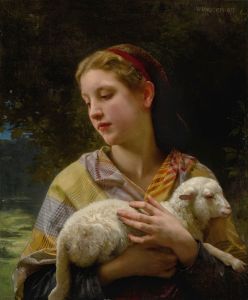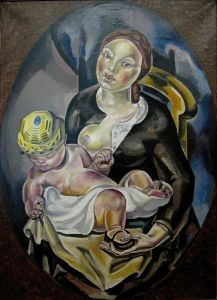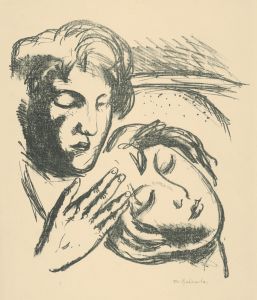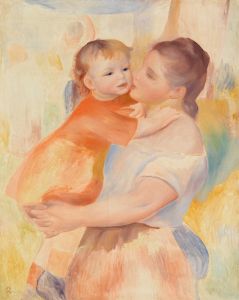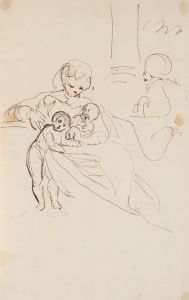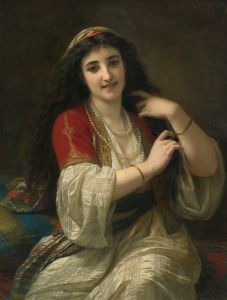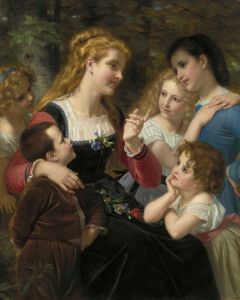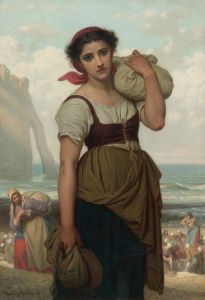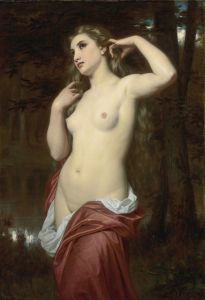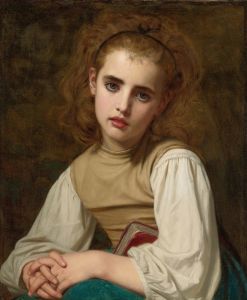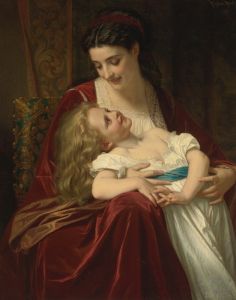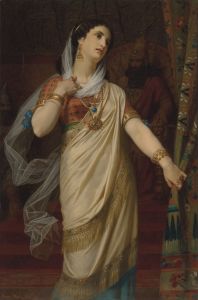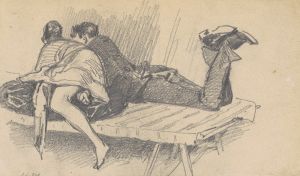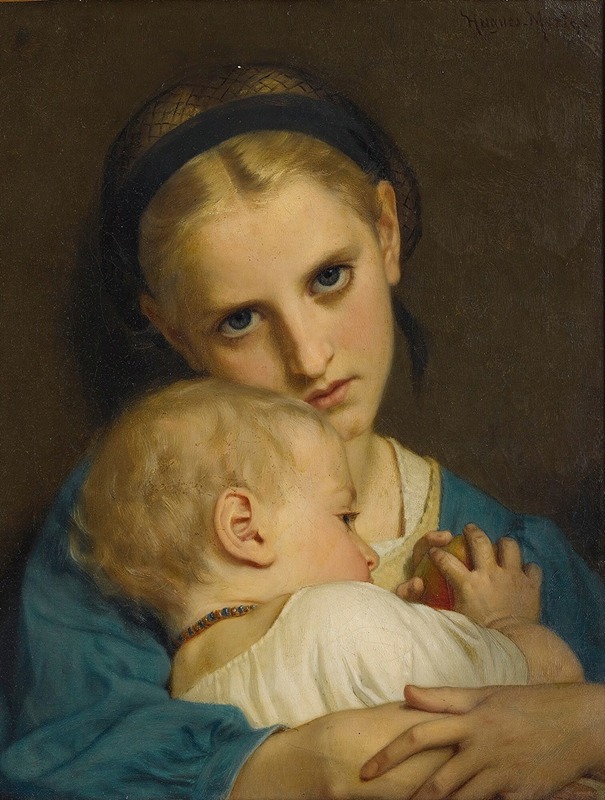
Affection
A hand-painted replica of Hugues Merle’s masterpiece Affection, meticulously crafted by professional artists to capture the true essence of the original. Each piece is created with museum-quality canvas and rare mineral pigments, carefully painted by experienced artists with delicate brushstrokes and rich, layered colors to perfectly recreate the texture of the original artwork. Unlike machine-printed reproductions, this hand-painted version brings the painting to life, infused with the artist’s emotions and skill in every stroke. Whether for personal collection or home decoration, it instantly elevates the artistic atmosphere of any space.
Hugues Merle was a French painter known for his genre works and portraits, often drawing comparisons to his contemporary, William-Adolphe Bouguereau. One of his notable works is "Affection," a painting that exemplifies Merle's skill in capturing tender human emotions and intimate moments.
"Affection" is a fine example of Merle's ability to convey emotion through the depiction of everyday scenes. The painting typically features figures, often a mother and child, which was a recurring theme in Merle's oeuvre. His works are characterized by their detailed realism and the soft, delicate treatment of his subjects, which was a hallmark of the academic art style of the time.
Merle's technique in "Affection" showcases his adeptness with oil paints, using a palette that emphasizes gentle contrasts and harmonious tones. This approach helps to create a serene and comforting atmosphere, drawing the viewer into the intimate world of the subjects. The composition is carefully balanced, often focusing on the interaction between the figures, which serves to highlight the emotional connection being portrayed.
The painting reflects the broader 19th-century European art movement that focused on themes of domesticity and the idealization of family life. During this period, there was a significant interest in exploring the roles and relationships within the family unit, often idealizing the maternal figure as a symbol of nurturing and care. Merle's "Affection" fits well within this context, as it captures the essence of familial love and tenderness.
Hugues Merle was active during a time when the art world was experiencing significant changes, with movements such as Realism and Impressionism beginning to challenge traditional academic art. Despite these shifts, Merle remained committed to the academic style, and his works were well-received by the public and critics alike. He exhibited regularly at the Paris Salon, where his paintings were praised for their emotional depth and technical proficiency.
"Affection" and other works by Merle contributed to his reputation as a painter who could effectively convey the subtleties of human emotion. His ability to depict the nuances of affection and tenderness made his paintings resonate with audiences, allowing them to connect with the universal themes of love and family.
Today, Hugues Merle's works, including "Affection," are appreciated for their craftsmanship and emotional resonance. They serve as a testament to the enduring appeal of 19th-century academic art and its focus on capturing the beauty and complexity of human relationships. While Merle may not be as widely known as some of his contemporaries, his paintings continue to be studied and admired for their contribution to the genre of sentimental and domestic art.
In summary, "Affection" by Hugues Merle is a quintessential example of 19th-century academic painting, highlighting the artist's skill in portraying intimate human emotions through the lens of family life. The painting remains a significant piece within Merle's body of work, reflecting the themes and artistic values of its time.





